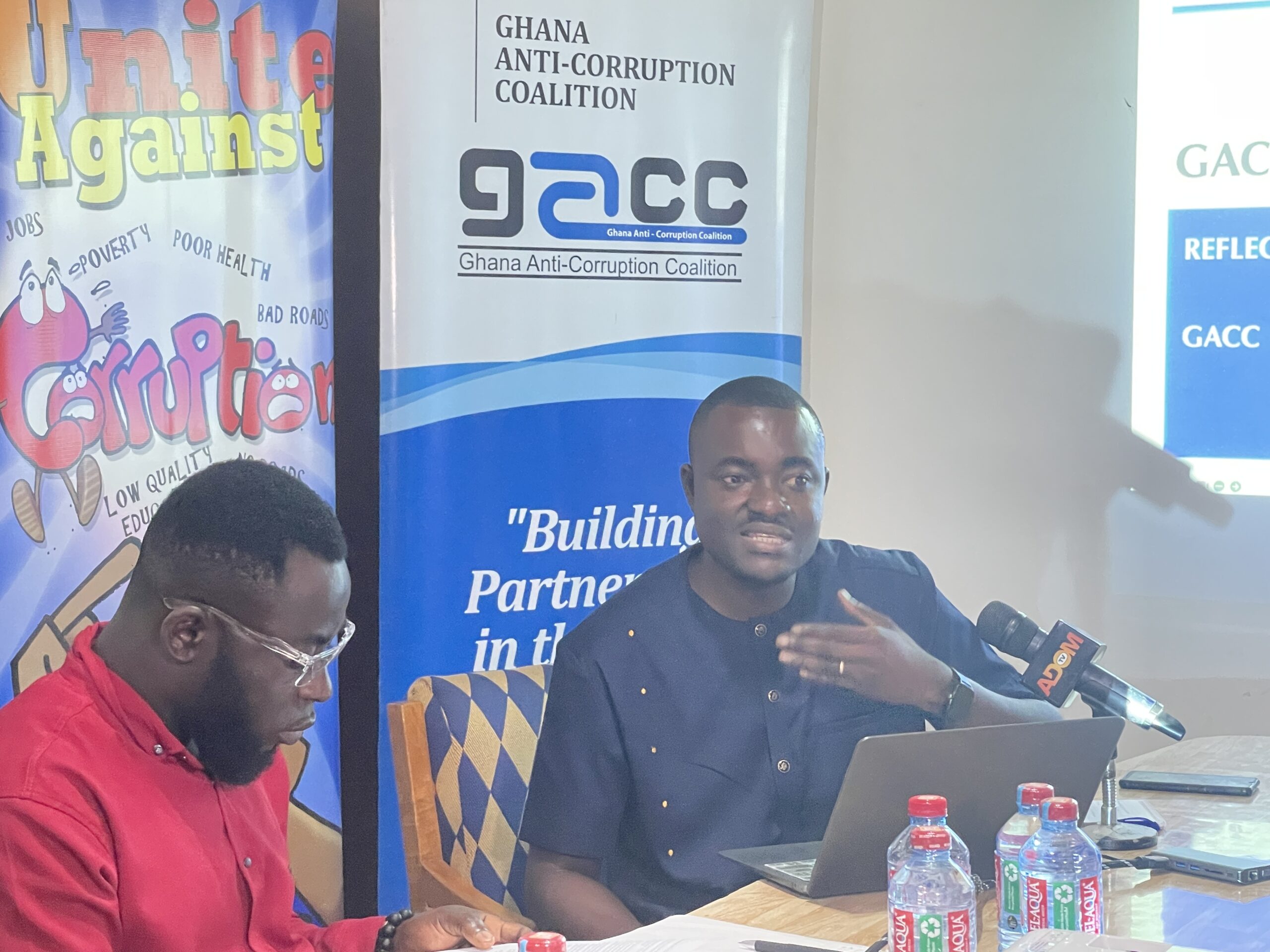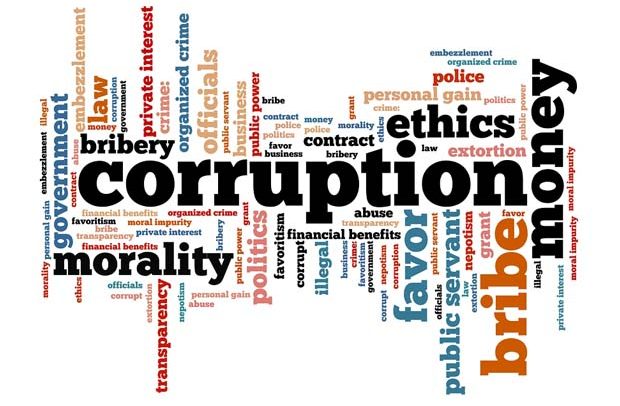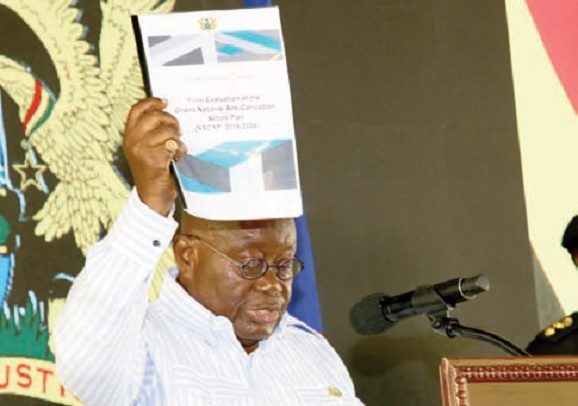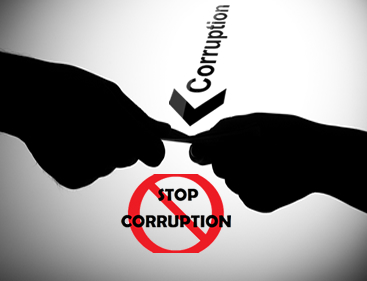
By Maureen E. BANSAH
The foundation of Ghana’s domestic regime on corruption is the Constitution, which requires the state to take steps to eradicate corrupt practices.[1] The primary legislation on corruption is the Criminal and Other Offences Act of 1960 (Act 29).
Then, in 2017, the Office of the Special Prosecutor Act 2017 (Act 595) was enacted to investigate and prosecute alleged corruption and corruption-related offences involving not just public officers but politically exposed persons and persons in the private sector.[2]
In the context of our discussion, it is a crime for anyone to corrupt a public officer if one endeavours directly or indirectly to influence the public officer’s conduct in respect of his duties by a gift, promise or prospect of any valuable consideration.[3] The law also prohibits giving gifts or consideration (bribes) to an agent (i.e., a person employed by or acting for another, including a civil servant) as an inducement or reward in relation to the principal’s affairs or business.[4] Thus, any officer or employee of a company who offers a bribe to a civil servant for an advantage is criminally liable under the law.
In Ghana, the actions of members in general meetings, the directors or the managing director while carrying on in the usual way of business will be considered the acts of the company itself.[5] It is worth noting that a corporation in Ghana is regarded as a “person.”[6]
In fact, this approach is endorsed by Article 26 of UNCAC, which requires state parties to extend legal liability for Convention violations to “legal persons”, that is, corporations and other private enterprises. Practically and from precedent, if a company is found guilty of a crime (here, corruption), the company would be fined, and the officers who committed the offence would face the full range of punishment options available.[7]
A person charged with an offence that has caused economic loss, harm or damage to the state or any state Agency may admit the offence and offer compensation, restitution or reparation for the loss, harm or damage caused.[8]
If the prosecution and the court consider the offer satisfactory, the court will accept a guilty plea and convict the accused but make an order to pay the compensation or make the restitution or reparation instead of passing a sentence.
If the convict fails to satisfy the terms of the order, the outstanding sum will become due. The court shall then pass a custodial sentence if the outstanding sum is unpaid.[9]
In 2019, Daniel Duku, the CEO of Venture Capital Trust Fund (VCTF), pleaded guilty to, among others, causing financial loss to the state and entered into a settlement agreement with the state to pay a sum of GH¢15 million to the VCTF and a fine of GH¢500,000 to the state.[10]
The Office of the Special Prosecutor Act has introduced plea bargaining for corruption and corruption-related offences. A person (either a private or public actor) under investigation or charged with corruption and its related offences may voluntarily admit the offence and either offer restitution or provide information to the office to aid in arresting and prosecuting other persons who have committed or are about to commit such offences[11].
The prosecution must consider certain factors in determining if the offer is acceptable[12]. If the offer is not acceptable to the prosecution, the investigation or case before the court shall proceed. If the offer is satisfactory to the prosecution and the court, the court will accept a guilty plea instead of passing a sentence. If the convict fails to meet the terms of the bargain, the outstanding sum will become payable, and if it is not paid, the court will pass a custodial sentence on the accused person[13].
The Office of the Registrar of Companies (ORC) now requires companies to submit particulars of beneficial owners and confirmation whether a beneficial owner is a politically exposed person (PEP).[14] PEPs can abuse the anonymity of companies by using them as vehicles for their corruption schemes. It is, therefore, essential to know who the natural persons who ultimately own, benefit from or control a company are to prevent and detect abuses. The administrative penalty for failure to deliver the particulars to the ORC could be as much as a fine of 6000 Ghana cedis only, or two years in prison, or both.[15]
PEPs can pose risks to companies through corruption and subsequent laundering of corruption proceeds. Since companies engaging with PEPs as business partners or clients may be considered by the public to be complicit in corruption scandals that these individuals engage in, it is crucial for companies, especially financial institutions, to take measures.
The law mandates accountable institutions to put in place appropriate risk management systems in addition to the performance of client due diligence to determine whether a prospective client or beneficial owner is a politically exposed person.
There shall be performance of enhanced due diligence and senior management approval before an authorised officer of an accountable institution can establish business with a PEP. Where an existing client or beneficiary is subsequently found to be or becomes a politically exposed person, the officer shall seek senior management approval to continue the business relationship.[16]
Other laws in Ghana that set the tone for anti-corruption enforcement and apply to the private sector are the Economic and Organised Crime Office Act, 2010 (Act 804), the Public Procurement Act, 2003 (Act 663), and the Whistleblower Act, 2006. There is currently a Conduct of Public Officers’ Bill yet to be passed by parliament, which gives comprehensive rules bordering on potential corrupt practices of public officers[17].
The National Anti-Corruption Action Plan (NACAP), 2012-2021, recognises the need to improve ethical standards and professionalism in the private sector. The document posits that the private sector can contribute to the fight against corruption by raising awareness of best practices, establishing and implementing ethical business procedures, improving financial management procedures, and promoting good corporate governance.
Civil society organisations have been playing their part to make up for the lack of adequate corporate integrity laws related to anti-corruption in Ghana. In March 2023, the Alliance for Integrity launched a six-month pilot project dubbed the Business Integrity Project.
The project supports SMEs in developing and implementing anti-corruption and compliance programmes for a responsible business environment. Its pilot project began in Accra and Kumasi but will be replicated in other cities nationwide[18].
How companies in Ghana can get started on anti-corruption programs
The UN Global Compact Management Model (2010) guides companies in successfully implementing a global sustainability strategy, which includes anti-corruption.
The model sets out six steps and recognises that an anti-corruption program is not a one-time activity but a continuous adaptation and improvement process. The six steps are outlined below:
- Leadership must demonstrate commitment to taking action (Commit)
- The company needs to conduct a corruption risk assessment to identify, prioritise and mitigate corruption risks (Assess)
- The company must design the program by defining its core values, code of conduct, and specific anti-corruption policies. This stage should also consider practical resources for grey areas. (Design/define)
- The policy must be implemented throughout and across the company’s value chain. Implementation is achieved through training, establishing internal controls, and having mechanisms for reporting and addressing violations. (Implement)
- The company must conduct regular risk-based evaluations to measure and monitor the impact and progress towards the goals of the policy. (Measure)
- Reporting and Participation: Finally, the company must communicate the progress and strategies and engage with stakeholders for continuous development. This will increase employee awareness and improve the company’s reputation in the market. (Communicate)
Additionally, Transparency International suggests that companies develop programs that “clearly and in reasonable detail, articulate values, policies and procedures to be used to prevent bribery from occurring in all activities under their control.”[19]
Recommendations
- Intervention from Government and Civil Society Organisations
There is no specific legislation codifying bribery and corruption in Ghana[20]. Civil society organisations (CSOs) have been clamouring for a new comprehensive anti-bribery legislation consolidating all bribery and corruption laws. It will be revolutionary for that new law to include extra-territorial jurisdiction like the UK Bribery Act and the Federal Corrupt Practices Act of the United States.
The country can take a cue from the United Kingdom by expressly making the failure of a company to prevent corruption a crime. Such a provision places a higher onus on companies to ensure all stakeholders and business partners adhere to their anti-corruption programs through proper communication and execution.
Compared to other countries, there is a dearth of jurisprudence on corruption from Ghanaian courts to fill the gaps. Hopefully, with time, we may get bold decisions from our courts, like in other countries like India.
For instance, in an audacious decision, the Supreme Court of India expanded the scope of “public officers” to cover officers of a private banking company to hold them liable under the Prevention of Corruption Act, the primary anti-corruption law in India[21].
The government can incentivise private companies for their performance in anti-corruption strategies through rebates or public commendation. In Ghana, the 2022-2023 NACAP Annual Working Plan recommends incentives for private companies that enforce anti-corruption provisions. The proposed incentives will be through tax cuts and state-sponsored integrity awards.
On a more interesting tangent, Paraguay launched “Sello Integridad” (Integrity Seal) in May 2022 as part of a trilateral cooperation project with Brazil and Germany. Following this, all Paraguayan companies can apply free of charge for the Integrity Seal recognition, subject to the successful completion of integrity training and satisfaction with the stated conditions.
The benefits of the Integrity Seal for the enrolled companies include positive publicity and public recognition. The Seal has made businesses increasingly aware of their role in fostering a culture of integrity practices for a saner business climate. The companies that participated in this programme have commented on the positive impact of this initiative on their activities and relations with business partners[22].
The Office of the Special Prosecutor currently has a corruption league table, a research-based model that assesses real and perceived levels of public sector corruption[23]. The Office also requires all public institutions to prepare and submit Integrity Plans to assess corruption risks in their regulations, policies, and operations, as well as curative measures to manage such susceptibility to corruption and corruption-related offences.[24]
Non-traditional approaches like award schemes can be a strategic intervention that complements traditional approaches (prevention, investigations, prosecution, and sanctions) to fighting corruption.
For instance, in 2019, the Ghana Integrity Initiative (GII), the country chapter of Transparency International, launched the Ghana Integrity Awards. This award scheme, held annually, was instituted to reward the efforts of public institutions and individuals to reduce corruption. In 2021, the award scheme was expanded to include the private sector. The GII believes the scheme’s impact, although not immediate, will gain momentum over time.
The government can play an active role in corporate integrity by strengthening public procurement rules and processes and offering training on the corruption risks associated with the procurement process. An example can be seen in the proactivity of Zambia’s Public Procurement Authority (ZPPA), which offers workshops for private companies to effectively address corruption risks associated with public tenders and procurement processes.
- Corporate Measures
Companies should take a three-step approach to tackling corruption: internal measures, external communication, and collective action. This section will consider the first two.
In terms of internal measures, companies should consider adopting anti-corruption programs, as discussed above. Since the corruption scandal, Siemens has turned a crisis into an opportunity and developed a rigorous anti-corruption strategy to redeem its image.
The anti-corruption strategy includes introducing compliance hotlines for employees, new strict internal compliance and client-supply interaction rules, a more responsive and protective whistleblowing regime, centralising bank payments to control cash flow against unauthorised payments and requiring greater transparency for consultancy contracts.
Again, in 2009, the company launched its Global Integrity Initiative to support organisations that fight corruption and fraud through collective action, education, and training, with funding of more than $US 100 million.[25]
Companies can demonstrate their commitment further by having a designated anti-corruption compliance officer[26] who will serve as the central personnel, ensuring the program is effectively implemented. The compliance officer’s role is to identify, monitor, and control bribery and corruption risks. The officer also ensures that all employees know the applicable regulatory requirements and abstain from corrupt practices.[27]
A compliance culture should be integrated and imbibed into the company culture through formal and informal training. It is necessary that the employees of the company, who are usually the first entry point for corruption, be trained.
In 2018, research conducted by Professor Christian Hauser showed that business professionals who have participated in anti-corruption training are more likely to reject justifications for corrupt practices than those who have yet to undergo such training[28].
For multinational companies, decentralising compliance teams will ensure that the needs of different countries are effectively addressed in the unique compliance programs. It is also easier to track the progress and effectiveness of a program when it is decentralised.
Since interaction with third parties poses corruption risks, the company must regularly audit and investigate suspected issues with third parties that may come to its notice. The company can suspend any payments due, withhold payments or terminate the relationship as an actionable means of enforcement when the third party breaches its anti-corruption policy.[29]
A company may consider including an incentive scheme for whistleblowing in its anti-corruption programme to promote commitment and support from employees and affiliates. Such incentives may be financial rewards or non-financial rewards like awards and recognitions. Collaborative efforts through training and engagement with relevant stakeholders and other companies also go a long way in sustaining an interest in cultivating a culture of compliance amongst businesses.
Companies’ top management must take charge of the program. Every meaningful compliance program starts with the company’s leadership (tone from the top), which is responsible for ensuring a zero-tolerance policy on corruption and setting a proper tone for the company. The oversight responsibility of the program rests with the Board of Directors or an equivalent body of the company.[30]
The board can appoint a compliance, audit, or ethics committee to support them in fulfilling this responsibility.[31] The Corporate Governance Code[32] even stipulates that the board is responsible for adopting and ensuring the implementation of company internal controls and policies (which include anti-corruption policies).[33]
Furthermore, the Code has whistleblowing provisions on improper activities or malpractices within a corporate organisation. It requires the board to appoint a person to whom disclosures may be made in good faith.
The person may be an independent director or the function may be outsourced to a third party that reports to the audit committee. The company shall then describe the facility for making whistleblowing reports on its website.[34]
For anti-corruption programs to be effective in companies, a clear disciplinary policy must ensure that violations are handled appropriately and fairly. This policy must have a catalogue of sanctions, guidelines on procedures and responsibilities and an opportunity to appeal[35].
In terms of external communication, companies can cite their anti-corruption commitment in external publications, such as annual or corporate social responsibility reports. In fact, the United Nations Office on Drugs and Crime (UNODC) recommends that there should be public reporting of anti-corruption efforts by businesses.[36]
Public reporting has become the central tool for communicating corporate engagement on various issues. The report can provide qualitative and quantitative information and the practical actions or outcomes achieved.[37]
It is necessary for companies to set expectations for their business partners and supply and distribution chain participants to conform to their company policy. Companies can share their experiences and best practices with the media at anti-corruption conferences, press releases, or round-table discussions.[38]
- Collective Action
“Our fight is collective. Corruption is a thief of our future. We need collective action to succeed.” – Rueben Lifuka, Former Vice Chair of Transparency International.
Collective action is a collaborative and sustained process of cooperation between stakeholders[39]. It brings companies from the same or different industry sectors together with other stakeholders, such as the government and civil society, to tackle shared corruption issues, raise business integrity standards and level the playing field between competitors[40].
The World Bank Institute proffers that “collective action may complement or temporarily substitute for and strengthen weak local laws and anti-corruption practices”.[41] The national anti-corruption strategies of numerous African countries and international instruments, such as the UNCAC and the updated 2021 OECD Anti-Bribery Recommendations, acknowledge collective action to address corruption as good practice.[42]
A company, through its internal risk assessment team, may have to decide whether collective action is an appropriate step to take. To demonstrate, the time may not be ripe for a company to initiate collective action if corruption is not a significant risk, the company and its competitors have anti-corruption policies, and there are no reasons to doubt that the host country’s government will conduct a fair tender.[43]
In Ghana, there have been a number of collective actions, with one launched in 2018, known as the Ghana Business Integrity Forum. The Ghana Business Integrity Forum seeks to facilitate engagements amongst businesses in the private sector, state actors, faith-based organisations, and civil society to identify, protect and advocate for a corruption-free business environment in Ghana. The state actors in this forum include the Registrar General, the Ghana Revenue Authority (GRA), the Public Procurement Authority and the Auditor General’s Office.[44
The World Bank Institute identifies four main forms of collective action[45]:
(i)Anti-corruption Declarations: Anti-corruption Declarations are short-term statements of intent to ensure compliance with anti-corruption commitments. Companies, governments and sub-contractors can all be signatories to an Anti-Corruption Declaration. [46]
(ii)Principle-based initiative: A principle-based initiative is a long-term initiative to promote appropriate business conduct within a business sector, country, or amongst countries. Examples are the Transparency International Business Principles for Countering Bribery (2013) and the Partnering Against Corruption Initiative (PACI) (2004).
(iii)Integrity Pacts: An Integrity Pact is a short-term project or transaction-specific formal agreement, usually between a government procurement authority and bidding companies, in which the parties agree to adhere to a fair and transparent public procurement bidding process. Transparency International developed this type of collective action in the mid-1990s and has been implemented in more than 30 countries and 160 major public tenders.
An Integrity Pact requires these elements: a written commitment by parties to respect integrity standards during the tender process, sanctions for violation of any undertaking, a mechanism for dispute resolution and an independent external monitoring system to oversee the process.[47]
A classic example of an Integrity Pact can be seen in Pakistan, where the government that came into power in 1999 collaborated with Transparency International (TI) Pakistan to find ways to reform public procurement procedures. In 2001, the Pakistani government decided to develop and apply an Integrity Pact to oversee procurement related to a significant public water project, namely the Greater Karachi Water Supply Scheme.
TI Pakistan served as the monitor to oversee a range of related tenders led by the Karachi Water and Sewerage Board (KWSB). The Integrity Pact of this project contributed to the efficient allocation of resources through increased competition, higher quality procurement and budgetary savings, not only for the government but also for taxpayers.
Due to the impact of the Integrity Pact, the Pakistani 2022 National Anti-Corruption Strategy endorsed using Integrity Pacts to oversee public procurement processes. Pakistan’s Public Procurement Rules, enacted in 2004, mandated that Integrity Pacts be implemented in all public procurement tenders valued at or above PKR 10 million.[48]
(iv)Certifying Business Coalition: A Certifying Business Coalition is a coalition responsible for monitoring and certifying that the coalition members adhere to shared common principles in the fight against corruption.
To join a coalition, a company must adhere to and show a clear commitment to the anti-corruption principles and ethical standards set down by the coalition.[49] This arrangement is subject to regular independent audits and external monitoring processes to ensure compliance[50].
To illustrate, the Nigeria Stock Exchange and the Convention on Business Integrity in Nigeria have established a joint initiative known as Nigeria’s Corporate Governance Rating System (CGRS), which has anti-corruption as one of its components.
The rating system lists directors who have passed the CGRS Fiduciary Awareness Certification Test on an “honour roll” on its website. The Securities and Exchange Commission of Nigeria later made it mandatory for all companies listed on the premium board to get a CGRS certification.
This process has encouraged many companies to sign up for this initiative[51]. Similarly, in 2010, the Comptroller General of Brazil and Brazil’s Ethos Institute developed the Selo Pro?-E?tica certification programme. The programme publicly commends companies that implement robust measures to prevent, detect, and address instances of corruption and fraud in their operations after successfully passing a rigorous evaluation process[52].
Conclusion:
Due to the prevalence of corruption in Ghana, corporate integrity and anti-corruption measures are undoubtedly necessary in modern businesses. Companies can address corruption risks through strict internal measures or external communication with relevant stakeholders. Moreover, considering the lack of or inadequacy of laws on corporate integrity in Ghana, collective action is a formidable measure that companies, civil society organisations, and governments can employ to ensure compliance with anti-corruption and ethical standards in the private sector. Through collective action, even small and medium enterprises (SMEs) that suffer disproportionate impacts from corruption and often lack the resources to establish the necessary measures can leverage influence to resist corruption more effectively.[53]
Companies in Ghana may not have anti-corruption compliance programs for many reasons. Most companies do not appreciate the significance of such a program due to the weak enforcement of anti-corruption laws. Other companies may only have such programs to tick boxes, but the programs may not effectively function in practice.
Some also need more financial resources, personnel, or know-how to design and implement the program effectively. Small and medium enterprises (SMEs) may consider themselves inconsequential and prefer channelling the funds to other relevant areas of the business.[54]
On a continental scale, most African-based foreign companies face peculiar challenges. The predominantly cash-based system on the continent, the requirement of local agents to carry out most projects, systemic corruption in the public sector, adapting the program to fit the cultural sensibilities of the host country, and weak law enforcement are but a few factors that contribute to this phenomenon. Also, “virtuous” companies that comply strictly with such programs may lose business since the company sometimes must decline offers tainted with corruption.[55]
Despite all these challenges in implementing an anti-corruption program, companies in Ghana need to take an earnest look at sealing the cracks in their internal controls to reduce incidents of corruption in their operations.
The author is a lawyer and an academic. She can be contacted via email at [email protected].
[1] Article 35(8) of the 1992 Constitution of Ghana as part of the directive principles of state which are presumptively justiciable.
[2] Preamble to the Office of the Special Prosecutor Act, 2017 (Act 959)
[3] Section 241 of Act 29
[4] Section 145(1)(b) of Act 29
[5] Section 147 of the Companies Act, 2019 (Act 992); Maxwell v The Republic [1977] GLR GLR 336
[6] Section 46 of the Interpretation Act, 2009 (Act 792); NPP v Attorney-General (1997) SCGLR 729
[7] Abu Ramadan & Anor. v Electoral Commission & 4 Ors. In Re: The Owner of the Station – Montie FM & 3 Ors. [2016] GHASC 48
[8] Section 35(1) of the Courts Act, 1993 (Act 459)
[9] Section 35(2) – 35(5) of the Courts Act, 1993 (Act 459)
[10] Graphic Online, https://www.graphic.com.gh/news/general-news/former-venture-capital-ceo-others-default-in-payment-of-gh-20m.html, last accessed on 18 February 2024
[11] Section 71(1) & 71(2) of Act 595
[12] Section 71/93) of Act 595
[13] Section 71(5) to 71(9) of Act 595
[14] Section 13(2)(m) of Companies Act, 2019 (Act 992)
[15] Section 114(3) of Companies Act, 2019 (Act 992)
[16] Regulation 8 of Anti-Money Laundering Regulations, 2011 (LI 1987)
[17]Parliament of Ghana, https://ir.parliament.gh/bitstream/handle/123456789/299/Conduct of Pubic Officer's Bill ,2013.pdf?sequence=1&isAllowed=y last accessed on February 12, 2024
[18] Alliance for Integrity, https://www.allianceforintegrity.org/en/news/messages/20230308-ghana-gea-business-integrity-project-launch.php
[19] Transparency International Business Principles, at 6.2
[20] United Nations, https://legal.un.org/avl/documents/scans/GhanaAntiCorruptionManual.pdf?teil=II&j, last accessed on February 1, 2024
[21] Central Bureau of Investigation, Bank Securities & Fraud Cell versus Ramesh Gelli and Others, Criminal Appeal Nos. 1077-1081 of 2013
[22] Alliance for Integrity, https://www.allianceforintegrity.org/en/news/messages/The-Integrity-Seal-in-Paraguay-Building-a-culture-of-business-ethics-and-transparency-together.php
[23] Office of the Special Prosecutor,https://osp.gov.gh/component/k2/item/10-statement-from-the-special-prosecutor-on-the-launch-of-the-ghana-corruption-league-table, last accessed on 12 February, 2024
[24] Office of the Special Prosecutor, https://osp.gov.gh/component/k2/item/10-statement-from-the-special-prosecutor-on-the-launch-of-the-ghana-corruption-league-table, last accessed on January 24, 2024.
[25] Global Journals Inc. (USA), Global Journal of Management and Business Research, Volume 12 Issue 13, 2012
[26] A compliance officer ensures that the company is in compliance with its external regulatory and legal requirements, as well as internal policies (https://financialcrimeacademy.org/compliance-officer-2/, last accessed on 16 February, 2024)
[27] Financial Crime Academy, https://financialcrimeacademy.org/the-role-of-an-abc-officer/, last accessed on 16 February, 2024)
[28] https://acgc.cipe.org/business-of-integrity-blog/does-anti-corruption-compliance-help-emerging-market-companies/, last accessed on 16 February, 2024
[29] Norton Rose Fulbright, https://www.nortonrosefulbright.com/en/knowledge/publications/8d332cdc/managing-third-party-corruption-risk#, last accessed 27 February 2024
[30] OECD, Corporate Anti-corruption Compliance Drivers, Mechanisms and Ideas for Change, p.48
[31] United Nations Office on Drugs and Crime (UNODC), An Anti-Corruption Ethics and Compliance Programme for Business: A Practical Guide, Adopted in New York, 2013
[32] Security and Exchange Commission, The Ghana Corporate Governance Code for listed Companies, 2020 (Corporate Governance Code)
[33] Paragraph 26 of the Corporate Governance Code
[34] Paragraph 30 of the Corporate Governance Code
[35] United Nations Office on Drugs and Crime, An Anti-Corruption Ethics and Compliance Programme for Business: A Practical Guide, Published in September 2013, p.95
[36] Ibid, p. 100
[37] Ibid, p.27
[38] World Bank Institute, Fighting Corruption through Collective Action, 2008 p.22
[39] Ibid
[40] Basel Institute Of Governance, A Practical Guide For National Anti-Corruption Agencies: Engaging The Private Sector In Collective Action Against Corruption, 2023
[41] World Bank Institute, Fighting Corruption through Collective Action, 2008 p.22
[42] Basel Institute Of Governance, A Practical Guide For National Anti-Corruption Agencies: Engaging The Private Sector In Collective Action Against Corruption, 2023
[43] Ibid at p.28
[44] Basel Institute of Governance, https://collective-action.com/explore/initiatives/2183, last accessed on February 17,2024
[45] Supra at p.30
[46] United Nations Global Compact, https://unglobalcompact.org/take-action/action/anti-corruption-collectiveaction#:~:text=Certifying Business Coalitions: Certifying Business,and monitoring processes ensure compliance, last accessed on 17 February,2024
[47] Transparency International, The Case for Integrity Pacts available at https://transparency.eu/wp-content/uploads/2016/10/Understanding-Integrity-Pacts_Amend.pdf , last accessed on February 18, 2024
[48] Basel Institute of Governance, https://baselgovernance.org/b20-collective-action-hub/integrity-pacts/integrity-pacts-case-studies/ip-pakistan, last accessed on February 18, 2024
[49] United Nations Global Compact, https://unglobalcompact.org/take-action/action/anti-corruption-collectiveaction#:~:text=Certifying Business Coalitions: Certifying Business,and monitoring processes ensure compliance, last accessed on 17 February,2024
[50] OECD, Policy Briefing Note, Collective Action And the Fight Against Corruption
[51] Basel Institute of Governance, A Practical Guide For National Anti-Corruption Agencies: Engaging The Private Sector In Collective Action Against Corruption, 2023
[52] Basel Institute of Governance, https://collective-action.com/explore/initiatives/2195, last accessed on February 17,2024
[53] World Bank Institute, Fighting Corruption through Collective Action, 2008 p.22
[54]African Development Bank, Anti-Bribery Policy and Compliance Guidance for African Companies, https://www.afdb.org/fileadmin/uploads/afdb/Documents/Events/IFF/Documents_IFF/A_powerful_tool_for_fighting_bribery_in_Africa-Anti-Bribery_Policy_and_compliance_guidance_for_african_companies.pdf, last accessed on January 25, 2024
[55] This is where collective action comes in to protect vulnerable companies from adverse consequences for abiding by ethical conduct.
The post Anti-corruption compliance and measures for modern businesses (2) appeared first on The Business & Financial Times.
Read Full Story



























Facebook
Twitter
Pinterest
Instagram
Google+
YouTube
LinkedIn
RSS